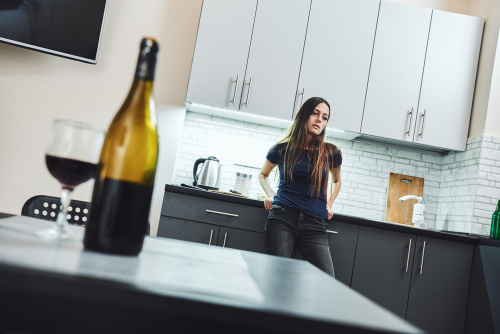How Long Should You Stay in Sober Living?
Every person is unique, and each individual’s substance abuse and/ or addiction recovery journey is distinct. Addiction, also a substance use disorder, is listed in the Diagnostic and Statistical Manual of Mental Disorders, Fifth Edition (DSM-5) as a chronic, relapsing brain disorder. It is characterized by compulsively engaging in rewarding stimuli (e.g. abusing drugs and/ or alcohol) without regard for consequence. An individual that struggles with addiction will prioritize satisfying her drug cravings above all else. The development of substance use disorder does not occur suddenly, nor will recovering from addiction be achieved instantaneously.
Although the recovery process from substance abuse and/ or addiction is not entirely linear, the process is usually comprised of completing detox, attending a substance abuse and/ or addiction treatment program, and aftercare. One component of an aftercare plan could include an individual transitioning into a sober living facility. Sober living facilities are group homes that offer transitional residence to individuals who have completed a substance abuse and/ or addiction treatment program. There is no finite answer regarding how long a person should stay in a sober living home, as the duration of one’s stay is highly personal and informed by each individual’s nuanced needs.
Sober living homes provide a safe environment for individuals to begin and practice contributing to society in a productive and sober fashion. At Friendly House, for example, we work hard to create clear expectations and boundaries to help prepare an individual for life after living in our sober living facility. We expect our residents to take an active role in their continued recovery and help them to develop sustainable and healthy routines. We understand that each person has distinct needs and work with each individual to come up with a time period that is personally suitable.
Useful tools and healthy coping mechanisms are hopefully absorbed through successfully completing a substance abuse and/ or addiction treatment program. For example, taking the time to identify one’s personal triggers surrounding substance abuse can be helpful in making a conscious decision to avoid them. The triggers and temptations that can present themselves to an individual in recovery can be overwhelming at times. As such, it is important to surround oneself with positive influences and when possible, to avoid negative, triggering situations. Residing in a sober living home inherently removes many of the potential triggers individuals may have that could threaten their sobriety. Some people find that residing in a sober living facility is extremely comforting and may become averse to the idea of transitioning out of the facility. We, at Friendly House, welcome individuals to stay as long as they would like, provided that residing in our facility is helping to progress their sobriety. The length of time an individual chooses to live in a sober living facility will vary, as it will directly depend on each person’s specific needs.
For Information and Support
Substance abuse and addiction can be incredibly dangerous and can result in severe short and long-term consequences. If you or someone you know is suffering from substance abuse or addiction, please get help as soon as possible. The earlier you seek support, the sooner you and your loved ones can return to leading happy, healthy, and fulfilling lives. There is no reason to go through this alone, and we are here to help. Please feel free to reach out to us for further information or with any questions regarding substance abuse or addiction. We are available anytime via telephone at: 213-389-9964, or you can always email us at: info@friendlyhousela.org.



